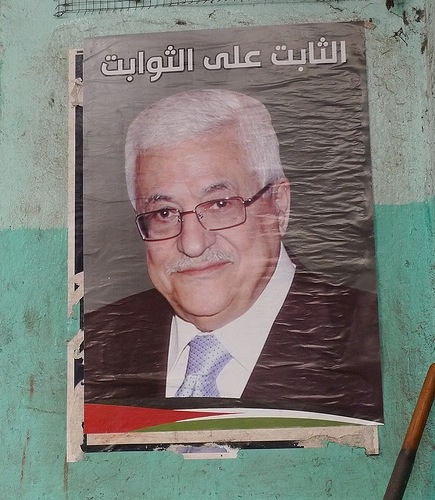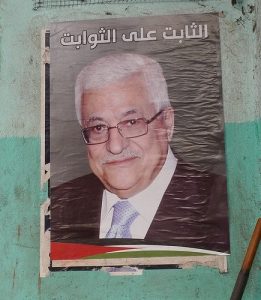As the UN Security Council meets behind closed doors today to consider the Palestinian application for UN membership, Mouin Rabbani argues Palestinians should use the UN bid to internationalize attempts to resolve the conflict.
On Israel-Palestine, President Obama’s address to the United Nations General Assembly left room for neither doubt nor ambiguity. Simply stated, Washington will not countenance any Palestinian challenge to perpetual Israeli occupation, no matter how symbolic or trivial. So far as the United States is concerned, a Palestinian application for enhanced membership in the world body has all the legitimacy of a suicide bombing in a Tel Aviv restaurant.
Washington’s embrace of the Netanyahu government and its agenda has become so comprehensive that it would be fair to conclude that guaranteeing Israeli impunity in any and all of its dealings with the Palestinian people has become a guiding principle of American Middle East policy. Indeed, an outside observer of US policy cannot but conclude that it is a case of the inmates taking over the asylum: Obama gives a speech that warms the heart of any die-hard Likudnik and delights even Avigdor Lieberman, and gets roundly condemned by American – not Israeli – politicians for throwing the Jewish state to the wolves.
As for Israeli pundits, many reacted with stunned disbelief to Obama’s excessive – and excessively slavish – display of patriotic Israeli zeal. By general consensus, Binyamin Netanyahu has had to revise his own UN speech lest he appear less Israeli than the American president.
Yet Palestinians – indeed the international community as a whole – are supposed to accept not only that Washington can mediate a durable Israeli-Palestinian peace, but that America alone can succeed where the United States has for decades systematically failed. Pro-Israeli partisanship on steroids, Obama would have us believe, is the essential prerequisite for successfully mediating a just and durable Israeli-Palestinian peace.
It is in this respect worth comparing the increasingly lurid threats American officials have been addressing to the Palestinians should they persist in taking their case to the United Nations, to Washington’s response to being repeatedly spat upon by Israel during the past year as the U.S. half-heartedly sought to temporarily extend a partial Israeli slowdown of Israeli settlement activity. In the latter case, Obama sought to market Netanyahu’s saliva to the Arabs as the most wondrous cure since aspirin. One suspects few in the region will have been impressed by Obama’s claims at the UN to support Arab aspirations for freedom and democracy. At this rate, the next Egyptian demonstration against a foreign embassy may well ignore Israel and head straight to the American one.
Palestinians must now come to terms with the reality that Washington is only prepared to support a Palestinian state on the condition none is ever actually established, and that there is little point to sitting for yet more American-Israeli exams designed to determine their eligibility for independence. By comparison with this charade, a hamster spinning in his wheel seem highly purposeful – and builds only one settlement.
httpv://www.youtube.com/watch?v=3n31MoyzdFE&feature=youtube_gdata_player
Rather, Palestinians must now undertake a comprehensive, systematic campaign to internationalise their conflict (as the author argued recently on Democracy Now, in debate with Ali Abu Nima, ed.). Every time Hilary Clinton presumes to speak on behalf of the international community, a new UN resolution should be submitted to demonstrate she represents only the United States, Israel and the good people of Micronesia and Palau. If the Obama administration is prepared to regularly show its hand on Israel-Palestine during this time of regional turmoil and upheaval, it should be obliged by the Palestinians.
There has been much talk – at least some of it accurate – about a deal in the making in New York. In a nutshell, a Palestinian leadership keen to avoid confrontation with Washington will declare victory without achieving anything, and in exchange be granted the privilege of once again negotiating forever about nothing. While this may satisfy some in the Palestinian leadership and many of the diplomats currently assembled at the Turtle Bay, such satisfaction is likely to be short-lived. For the growing murmurs of dissent in Palestine are directed not only at the increasingly repressive rule of Hamas in the Gaza Strip, but equally at a leadership in Ramallah that has no mandate to engage in endless negotiations about inalienable rights that serve only as a cover for deepening Israeli colonization.
As a tactical maneuver, the Palestinian UN gambit is sure to fail. But as the first step of a strategic transformation, even one unintended by its authors, it may well represent the only remaining hope for a credible two-state settlement.
Mouin Rabbani is an Institute for Palestine Studies Visiting Senior Fellow. This post is a longer version of an article published Last week in The Hill. Mouin also published yesterday in the London Review of Books.

